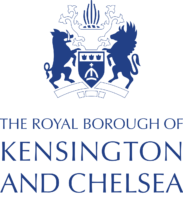Delivering sustainable discharge and flow improvements across East Surrey
Delivering sustainable discharge and flow improvements…


Trialling innovative ways of working, with a greater focus on outcomes and strengthened resilience
Initially, our work with RBKC had a focus on financial resilience, helping a shift to an outcomes-led business planning approach and identify associated savings. Once the pandemic hit, the scope of work was broadened to support the council’s Covid response, addressing delivery challenges, while keeping up the momentum to achieve the Medium-Term Financial Strategy (MTFS). To better coordinate the delivery of cross-cutting savings initiatives in the MTFS, and to look differently at how the council operates within complex systems, we helped form the Transitions Programme in September 2020 to support with the objective of improving outcomes for less.
The Transitions Programme is enabling the council to navigate between the initial pandemic recovery period and a new model of working that will increase organisational resilience (the ability to anticipate, adapt to and bounce forward from disruption). This will allow RBKC to deliver on the outcomes that are important to its residents and businesses, all within a tighter financial framework.
A key focus for IMPOWER was to ensure that the individual projects did not operate in siloes by helping the council to identify the connections and dependencies between them and work with each project lead to shape and deliver innovation sessions, bringing together relevant stakeholders from across the council to set an inclusive ambition and reframe the challenges for the project in an outcomes-focused way.
In early 2021, we developed new evidence bases to refresh the approaches to debt reduction and debt prevention and piloted the Listening Tool, software which uses machine learning and natural language processing to analyse nearly fourteen thousand pieces of resident feedback. This new practice has identified how the council can respond more effectively to residents.
The Listening Tool has given the council access to a volume and richness of resident feedback in a way like never before. The analysis has fed into decision making, informing how and where the council should focus its work to maximise the positive impact on communities and ultimately raise resident satisfaction levels. Since trialling it with the Customer Services team, we have embedded it as business as usual and have trained 30 members of staff in how to use the tool. It is now being used to inform the council’s work on building financial resilience and we are identifying ways in which it can be used elsewhere to get to know residents better.
The Listening Tool has enabled RBKC to improve the experiences of residents when contacting the council. We identified that vulnerable residents were having a worse experience (evidenced through a satisfaction score of 20% below average) than their non-vulnerable counterparts when contacting the council. This new intelligence prompted Heads of Service to quickly put in place training for customer access staff and address the common .
Our wider work on financial resilience and debt has had a similar outcome benefit. By working with the council to better understand their communities and the profile of debt, we have developed new approaches to both reduce debt from those who can pay, and take a different preventative approach for those who needed financial support.
For example, using our analysis, we developed and run trials of applied behavioural science interventions, to change the language on letters and text messages sent to residents. These have both increased the collection of outstanding council tax arrears and encouraged residents to contact the council for financial support. As a result, there has been a reduction in the number of cases escalating to court summons.
Both two-month trials had clear results:
Feedback from the Council Tax Recovery Team has been universally positive: proactively contacting residents has improved the dialogue between residents and councils. Residents appreciate the contact and feel more supported, creating a more positive and productive relationship.
* These figures were captured through comparing payment rates of a control group who received the old letter and the trial group who received the revised letter. The trial ran over two months of May – June 2021. Actual repayment rates, projected income.
** This report was provided by the Enforcement team leader and analysed by the IMP team. 1,033 residents with arrears from 2019/20 were contacted via text informing them that they had Council Tax arrears and will receive a Court Summons if they do not pay soon. At the time of the reporting in June 2021, 12% of people who had been contacting had cleared their arrears in response to the text.
The Transitions Programme has been designed with organisational resilience in mind and RBKC is now using IMPOWER’s resilience framework – which was developed in conjunction with the County Councils Network (CCN) and eight local authorities – to enhance resilience across the projects.
Our interviews with more than 20 directors across the organisation identified multiple opportunities where RBKC can nurture and build organisational resilience. In particular, it recommended ways to enhance its anticipatory capability through better use of financial and performance intelligence, staff engagement and empowerment, and resource flexibility. The findings are now being used to improve the relevant projects within the Transitions Programme, for example, by creating new evidence sets to inform decision making, introducing innovation, involving and listening to frontline staff, and adopting approaches that provide space to test, learn and share across each project.
We are creating a thread of organisational resilience through the Transitions Programme which means that the council is better placed to anticipate and manage future unplanned events, whether these are financial, organisational or operational.
Get in touch if you’d like to discuss the challenges your organisation is facing.